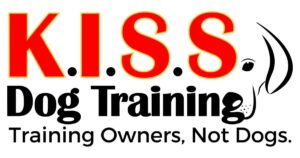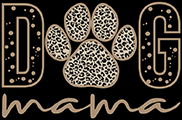Understanding canine habits can generally be difficult, notably in terms of aggression. Aggression in canine can stem from a wide range of components, together with atmosphere, upbringing, and socialization, however genetics additionally performs a vital position.
Whereas it’s necessary to not generalize that sure breeds are inherently aggressive, genetics can affect a canine’s predisposition to sure behaviors. On this weblog, we’ll discover the connection between genetics and aggression in canine and the way correct coaching, akin to working with a Canine Conduct Specialist in Kansas Metropolis, might help handle and scale back these tendencies.
The Function of Genetics in Canine Aggression
Each canine inherits traits from its ancestors, and similar to people, canine can inherit behavioral tendencies by their genetic make-up. These genetic components don’t predetermine a canine’s habits, however they’ll affect how doubtless a canine is to exhibit aggressive tendencies in sure conditions. For instance, some canine breeds have been traditionally bred for guarding, looking, or safety work. These roles could require a extra assertive, protecting, or reactive temperament.
Whereas this doesn’t imply that each one canine inside a selected breed will exhibit aggression, it does imply that sure breeds could be extra inclined to point out aggressive behaviors in the event that they’re triggered by particular conditions or not given the right coaching.
Widespread Genetic Influences on Aggression
Breed-Particular Traits: Sure breeds, akin to Rottweilers, German Shepherds, and Doberman Pinschers, have been initially bred for cover, safety functions, and even livestock guardians. These canine could have stronger protecting instincts, which may generally be mistaken for aggression. However, breeds like Border Collies and Australian Shepherds, bred for herding, could show nipping behaviors, which may also be interpreted as aggression if not correctly managed.
Inherited Temperaments: Puppies can inherit the temperaments of their mother and father. For instance, a pet with aggressive or extremely reactive mother and father could inherit a few of these tendencies. Nonetheless, this doesn’t imply the canine will routinely turn into aggressive. Correct socialization and coaching are important to molding a well-adjusted grownup canine.
Predisposition to Worry-Primarily based Aggression: Some canine have a genetic predisposition to fearfulness, which may result in fear-based aggression. Canines which might be naturally extra anxious or fearful could also be extra more likely to react aggressively after they really feel threatened or cornered. This kind of aggression can usually be managed by cautious socialization and coaching from a younger age.
Environmental Components Matter Too
Whereas genetics can affect a canine’s habits, environmental components play an equally necessary position. A canine’s upbringing, socialization, and coaching will considerably influence how their genetic tendencies manifest. Even when a canine is genetically predisposed to sure behaviors, early socialization, constant boundaries, and optimistic reinforcement coaching might help forestall aggressive tendencies from growing.
When you’re involved about aggression in your canine, working with a Kansas Metropolis Canine Conduct Specialist can present worthwhile perception into your canine’s particular triggers and show you how to tackle the problem successfully. Specialists can assess each genetic and environmental components to create a coaching plan that targets your canine’s distinctive wants.
Recognizing Indicators of Aggression
Recognizing the early indicators of aggression is essential to managing and decreasing problematic behaviors. Widespread indicators embrace:
Growling or Snarling
Baring Enamel
Stiff Posture or Raised Hackles
Lunging or Snapping
Biting or Nipping
Fearful, Anxious, and Reactive Tendencies
Different issues to search for are the concepts of concern, anxiousness, reactiveness, and aggression, as they’re all interconnected, and one tends to result in the opposite because the canine pushes additional and additional down that path. Be looking out for yawns, look-aways, seeing the whites of the attention, tucking tail, freezing, and avoiding eye contact.
Understanding these indicators lets you intervene earlier than the habits escalates. Keep in mind that aggression is commonly a canine’s method of speaking concern, discomfort, or frustration, and it’s essential to strategy these conditions calmly and with a transparent plan.
The Significance of Early Socialization
Probably the most efficient methods to counterbalance any genetic predisposition to aggression is thru early and constant socialization. Puppies which might be uncovered to a wide range of environments, folks, and different animals throughout their formative months are much less more likely to develop fear-based aggression later in life.
Socialization helps canine turn into assured and comfy in new conditions, which reduces the probability of fear-based reactions. Even when a canine has an inherent tendency in the direction of protectiveness or wariness of strangers, constant optimistic experiences throughout their early growth might help them navigate these conditions calmly and with out aggression.
Skilled Coaching for Aggression
When you’re coping with a canine that exhibits indicators of aggression, it’s necessary to hunt assist from an expert. Aggression can escalate if not correctly addressed, and making an attempt to handle it with out the appropriate information could be harmful. A Canine Conduct Specialist in Kansas Metropolis can consider your canine’s habits, determine triggers, and create a coaching plan that comes with each habits modification and administration methods.
It’s additionally vital that the vet, coach, and consumer are all on this collectively. Open communication is essential in terms of a profitable coaching course of when coping with fearful, anxious, reactive, and aggressive canine.
Genetics Isn’t Future
Whereas genetics can affect a canine’s habits, they don’t decide a canine’s destiny. Aggressive tendencies could be managed, and lots of canine with genetic predispositions towards sure behaviors can lead pleased, well-adjusted lives with the appropriate coaching and atmosphere. It’s necessary to keep in mind that even when your canine has some genetic predisposition to aggression, this habits can usually be modified and managed by correct coaching, socialization, and care.
For extra info on how genetics influence canine aggression, make sure you try this extremely advocate course:
“It Should Be Genetic: The Heritability of Aggression”
Led by Jessica Hekman, DVM, PhD
When you discover indicators of aggression in your canine, particularly in the event that they stem from a breed with protecting tendencies or if the habits appears to be fear-based, looking for the steerage of a Kansas Metropolis Canine Conduct Specialist is essential. With the appropriate assist and strategy, even canine with aggressive tendencies can turn into calm, assured companions.

On the lookout for a Canine Coach in Shawnee or Kansas Metropolis?
Contact Okay.I.S.S. Canine Coaching Right this moment!
Okay.I.S.S. Canine Coaching has been a number one canine habits specialist in Kansas Metropolis for over ten years. We take pleasure in strengthening the relationships between homeowners and their canine. We consider it’s important for people to grasp what their canine wants and one of the best methods to assist them get it. As a frontrunner for aggressive canine coaching in Kansas Metropolis, we’ll present the right steps that will help you construct the healthiest relationship attainable along with your furry good friend.
Contact us on-line or give us a name at 913-269-7595 to companion with a coach. We’re a high canine coach in Shawnee and proudly service neighboring communities like Overland Park, Olathe, and others all through the Kansas Metropolis metro space.
537 Complete Views 3 Views Right this moment




![The Evolution of Play [revisited] – McConnell Publishing Inc. The Evolution of Play [revisited] – McConnell Publishing Inc.](https://i3.wp.com/www.patriciamcconnell.com/wp-content/uploads/2026/01/IMG_1102.jpeg?w=120&resize=120,86&ssl=1)



